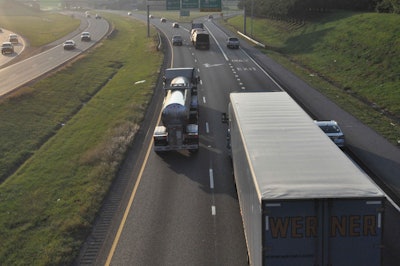
The Aviation, Innovation, Reform and Reauthorization Act bill, which deals almost entirely with aviation policy and funding, cleared the T&I Committee by a narrow 32-26 margin, paving the way for the bill to be taken up by the full House.
The trucking-relevant clauses would: (1) Block states from requiring drivers to take meal and rest breaks, if such a law is on the books at the state level, (2) exempt carriers from penalties for not requiring drivers to take state-law-required breaks and (3) Allow carriers, as employers, to skirt any state laws requiring drivers be paid “separate or additional compensation” beyond mileage or other base pay.
Carriers would still be allowed to provide other compensation, such as detention time or other initiatives, but they wouldn’t be required to if state law dictated such measures.
The preemption measures in the FAA bill made their first appearance in long-term highway bills floated last fall. The FAST Act highway bill passed in December, however, did not include the language, opening the door for lawmakers pushing the provisions to slip them into the aviation-focused bill.
Recent court rulings upholding state enforcement of break laws for truckers — notable, a 2014 decision by the 9th Circuit Court of Appeals regarding California break laws — prompted the push by some lawmakers for the preemption provisions.
The FAA bill, especially the language dealing with trucking reforms, still has several major hurdles to clear before clearing Congress at large, including passage by the full House and, more notably, working out a deal with the Senate to pass either the current version or a new version.











